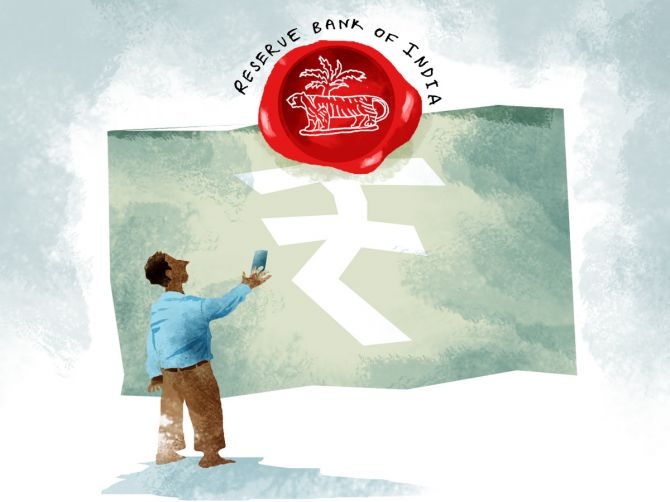The message is clear: The 60-year-old wise uncles need to handhold the 40-year-old entrepreneurs when, obsessed with ambition and greed for growth, they become a victim of hubris, points out Tamal Bandyopadhyay.

It's difficult to pinpoint who invented the car, but Karl Benz is most often identified as the inventor.
He patented the three-wheeled motor car -- called “Motorwagen” -- in 1886. It was the first modern automobile.
A century later, in the 1980s, Ernst Dickmanns of Germany converted a Mercedes-Benz van into an autonomous vehicle, guided by an integrated computer.
In 1987, the car managed to travel through traffic-free streets at a speed of 63 km an hour.
Google, Tesla and Uber got into the self-driving car business decades later.
In October 1994, Dickmanns' team picked up a group of high-profile guests from the Charles de Gaulle airport in Paris, drove them to the nearby motorway and switched the two cars into self-driving mode.
A year later, the team took a re-engineered car on a 1,700-km trip, from Bavaria to Denmark, at a speed of at least 175 km per hour.
Benz, Dickmanns and others like them are great innovators and have enormously contributed to the evolution of human civilisation. But did they have the licence to drive a car violating traffic rules?
The same applies to the current fintech sector.
Innovations are welcome and there is no conflict between innovations and regulations.
By the way, what's fintech? According to the Financial Stability Board (FSB), fintech is “technology-enabled innovation in financial services that could result in new business models, applications, processes or products with an associated material effect on the provision of financial services”.
FSB, headquartered in Basel, Switzerland, is an international body that monitors and makes recommendations on the global financial system.
The first transatlantic cable (1866) and Fedwire (1918) in the US marked the first stage of fintech as they enabled the maiden electronic fund transfer, using technologies such as telegraph and Morse code.
The second stage kicked off in 1967 when Barclays set up the ATM.
A few years later, in the 1970s, the Society for Worldwide Interbank Financial Telecommunication (SWIFT) started facilitating large volumes of cross-border payments.
SWIFT is a communication protocol between financial institutions.
Digital banking appeared on the scene in the 1990s. By 1998, the launch of PayPal, an US multinational financial technology company, laid the path for the new payments systems in the world that started shifting to online.
It continued for exactly a decade when the global financial crisis, triggered by the fall of iconic US investment bank, Lehman Brothers Holdings Inc, changed the track of fintech.
Bitcoin was born in 2009, followed by other cryptocurrencies using blockchain technology.
Meanwhile, the proliferation of smartphones and mushrooming of startups started redefining products and services in the fintech space.
They have helped create the so-called neo-banks or digital banks and changed the customer experience. At the forefront of this revolution are China and India.
Going by data from the department for promotion of industry and internal trade (DPIIT) of the ministry of commerce and industry, in seven years between 2016 and 2023, the number of startups in India grew from around 300 to at least 117,000, generating more than 1.24 million jobs.
India is home to 10,224 fintech companies working in diverse sectors and segments, making its fintech ecosystem the third largest in the world.
It has been expanding at 14 per cent compound annual growth rate.
The driver of all innovations is changing the customer experience in a secure way.
In the current stage, going beyond blockchain and open banking, machine learning is set to redefine both banking and insurance.
Fintech is changing the way money is collected through a wave of integrated payments providers.
Why am I mixing the invention of cars with fintech? What's the connection? Let's get to the crux of the matter.
The provocation is the shock and surprise that has gripped the fintech industry after the Reserve Bank of India's (RBI's) action against Paytm Payments Bank Ltd and the reactions of some fintech leaders.
The founder of an Indian multinational fintech company that sells digital payment and financial services to small merchants and grocery stores is not happy with the RBI's “punitive” action against the payments bank. According to him, the message being sent out by such an action is that “banks are (systemically) important but fintechs are not”.
“In the RBI, individuals responsible for making decisions and handling calls are typically around 60 years old. They have experience managing a system of banks. However, there seems to be a lack of trust in a 40-year-old individual, especially if they are considered a maverick, to run a core system,” the 41-year-old founder said. The founder of the payments bank in the eye of the storm is 45.
This gentleman is entitled to have his opinion about the inability of sexagenarians to appreciate the innovations of quadragenarians, but just as car inventors could not escape traffic rules, fintech innovators -- however great their contributions to the growth and development of the industry be -- are not above the rules that govern the flow of money.
More importantly, what does the payments bank in question have to do with innovations that are supposedly under threat? The promoter of the bank in question is into fintech, but not the bank that has been punished for the violation of KYC (know your customer) norms, among other irregularities.
“In RBI's view, Paytm is not systemically important. ‘If it dies, it dies, what do we care?'” the founder of the fintech company has said.
Yes, Paytm Payments Bank is not systemically important. For that matter, no payments bank in India is systemically important.
The maximum money a depositor can keep with a payments bank is Rs 2 lakh, which enjoys insurance cover. And 75 per cent of their deposits are invested in government securities.
Where is the systemic risk? Moreover, such banks have very small balance sheets. (Paytm Payments Bank had posted Rs 14.5 crore profit on an asset base of Rs 9,844 crore in FY23.)
Nonetheless, Finance Minister Nirmala Sitharaman's recent meeting with startups must be reassuring to the fintech ecosystem.
Following this, we expect the RBI to hold monthly meetings with fintech start-ups since innovative solutions are essential to the financial services sector, while adhering to regulations.
A few months ago, the banking regulator issued a draft framework for the recognition of self-regulatory organisations (SROs) for the fintech sector.
An SRO will also come in handy for putting the fintech house in order, maintaining a balance between adherence to regulations and innovations.
The RBI and DPIIT will now start working with the finance ministry to examine issues relating to change of ownership holdings and control of listed fintech companies to enable them to be in sync with regulatory compliance requirements.
Innovations in the fintech sector will continue, but 40-year-old innovators will never have the freedom to ignore the regulations set by central bankers in their 60s so long as their products are meant for the financial system.
The message is clear: The 60-year-old wise uncles need to handhold the 40-year-old entrepreneurs when, obsessed with ambition and greed for growth, they become a victim of hubris.
A sexagenarian banker has been instrumental in cleaning the balance sheet of the fintech company founded by the gentleman who is not comfortable with the age of central bankers. And the payments bank's promoter has recently appointed a septuagenarian to strengthen governance and regulatory issues involved in the parent company. He was not a central banker but a regulator.
Tamal Bandyopadhyay is an author and senior advisor to Jana Small Finance Bank Ltd His latest book is Roller Coaster: An Affair with Banking
Disclaimer: These are Tamal Bandyopadhyay's personal views.
Feature Presentation: Rajesh Alva/Rediff.com











